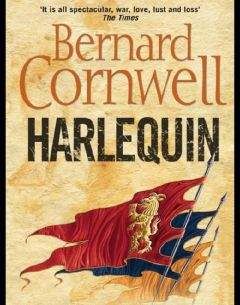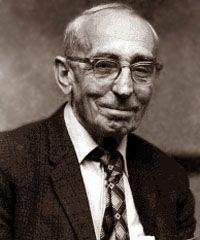Пользователь - o 3b3e7475144cf77c
На сайте mybooks.club вы можете бесплатно читать книги онлайн без регистрации, включая Пользователь - o 3b3e7475144cf77c. Жанр: Прочее издательство неизвестно,. Доступна полная версия книги с кратким содержанием для предварительного ознакомления, аннотацией (предисловием), рецензиями от других читателей и их экспертным мнением.
Кроме того, на сайте mybooks.club вы найдете множество новинок, которые стоит прочитать.

Пользователь - o 3b3e7475144cf77c краткое содержание
o 3b3e7475144cf77c читать онлайн бесплатно
which have an unpleasant connotation change frequently in the best society, where people try
so hard not to wound one another's feelings.
Olivie was a woman of Irma's type, a brunette with deep coloring, in temperament rather
placid, in manner sedate. They had entertained each other, exchanged visits, and satisfied their
curiosity. Now they talked about having to wear summer clothing with a strong Japanese
flavor, or note, or atmosphere; they would have to wear it, of course—it would never occur to
them to rebel against what the fashion creators decided was the fashion.
Lanny, wishing to be polite, remarked: "We were talking about your family last night. My
father is having a meeting with your father."
"A business matter?" inquired Olivie.
"Mine is trying to persuade yours that he can deliver certain railroad equipment at Brest at a
lower price than it can be manufactured in France."
"It will be pleasant if they become associated," replied the young matron. "My father has a
great admiration for American production methods, and wishes they might be imported into
France."
Pierre Hellstein was a director in the Chemin de Fer du Nord, and controlled one of the
biggest banks in Paris. Robbie had asked Denis about him, and they had discussed this wealthy
Jewish family spread widely over Europe; also the position of the railroad, reputed to be run
down and overloaded with bonds. The Hellsteins didn't have to worry, because the government
covered its deficits; there had been criticism in the Chamber—the French Republic was going
broke in order to protect the railroad bondholders. Denis de Bruyne, who owned some of the
bonds, resented these criticisms as irresponsible and demagogic. As for Olivie, beautiful,
serene, magnificent in a long sable coat, she was perfect evidence of the wisdom of guaranteeing
large incomes to a few chosen individuals, in order that they may be free to attend fashion
shows and constitute themselves models of elegance and refinement.
VIII
"Oh, by the way," said the daughter of Jerusalem, all at once; "I understand that you were in
Germany not long ago."
"Just before Christmas," replied Lanny.
"I do wish you would tell me about it. It must be dreadful."
"In some ways, and for some people. Others hardly notice it."
"Oh, Monsieur Budd," said Olivie, lowering her voice, "may I tell you something without its
going any farther? I'm really not supposed to talk, but we are all so worried."
"You may be sure that my wife and I will respect your confidence, Madame."
"We have just learned that the Nazis have arrested my Uncle Solomon. You know him,
possibly?"
"I had the pleasure of meeting him at the home of Johannes Robin. Also, I am one of his
depositors in Berlin."
"They have trumped up some charge against him, of sending money out of Germany. You
know, of course, that a banker cannot help doing that; especially a family like ours, doing
business in Austria and Czechoslovakia and Rumania, and so many other countries."
"Of course, Madame."
"We Jews hear the most dreadful stories—really, it makes you quite sick."
"I am sorry to say that many of them are true. They tell you thatsuch things happen in
violent social overturns. But I doubt if the Nazis would do physical harm to a man like your
uncle. They would be more likely to assess him a very large fine."
"It is all so bewildering, Monsieur Budd. Really, my father cannot be sure whether it would
be safe for him to go into Germany to see about it."
"I will make a suggestion, Madame, if you don't mind."
"That is just what I was hoping you might do."
"I ask you to consider it confidential, just as you have asked me. Tell your mother and father,
but nobody else."
"Certainly, Monsieur Budd."
"I suggest their sending somebody to interview General Göring. He has a great deal of
influence and seems to understand these matters."
"Oh, thank you!" exclaimed Olivie Hellstein. "I am so glad I thought to ask you about it."
Irma put in: "Send somebody who is dignified and impressive-looking, and tell him to be
dressed exactly right, and not forget any of the Minister-Prasident General's titles."
IX
Out of duty to the memory of Marie de Bruyne, Lanny made an effort to see her younger
son, but found it impossible. Charlot was meeting somewhere with the leaders of his society,
and the inquiries of strangers were not welcomed. This Tuesday, the sixth of February, was to
be the great night in which all the organizations of the Right in France would "demonstrate"
against the government. Marching orders had been published in all the opposi tion papers,
under the slogan: "À bas les voleurs! Down with the thieves!" At twilight Charlot would
emerge from his hiding place, wearing his tricolor armband with the letters F.C.F., which meant
that he was a Son of the Cross of Fire. He would be singing the Marseillaise; an odd
phenomenon, the battle-song of one revolution becoming the anti-song of the next! In between
singing, Charlot and his troop of patriotic youths would be yelling the word
"Démission!"— which meant the turning out of the Daladier government. Less politely they
would cry: "Daladier аи poteau!" meaning that they wished to burn him alive.
Lanny drove his wife to the Chamber, going by a circuitous route because the Pont de la
Concorde was blocked by gendarmes. For an hour the couple sat in the public gallery and
listened to an uproar which reminded Lanny of what he had heard on the floor of the New
York Stock Exchange at the height of the panic. Daladier couldn't make his speech; his political
enemies hurled at him every abusive name in the extensive French vocabulary, while at the
same time the Communists sang the Internationale.
When this became monotonous, the Americans went out to have a look at the streets. They
couldn't see much from a car, for fear of being caught in fighting, and decided that the best
place from which to witness a Paris démonstration was from the windows of their hotel suite.
Robbie, sensible fellow, was in his rooms, talking business with the head of a French building
concern which sometimes bought ascenseurs. The two younger people stood on the balcony of
their drawing-room, which looked over the great Place de la Concorde, brilliantly lighted, and
with an obelisk in the center having floodlights on it. Directly across the Place was the bridge
over the Seine to the Palais-Bourbon, where the deputies met; a building in Roman style with
many tall pillars brightly shining.
There must have been a hundred thousand people in the Place, and more pouring in by every
street. They were trying to get across the bridge, but the police and troops had blocked it with
patrol-wagons. The mob started throwing things, and soon there was a pitched battle, with
charges and counter-charges going on most of the night. The Fascists hurled whatever they
could lay hands on. They pried up stones from the pavement, and tore off the scaffolding from
the American Embassy, which was under repair. The railings of the Tuileries gardens provided
them with an iron missile, shaped like a boomerang and impossible to see in the dark. When the
mounted gardes républicaines tried to drive them off the bridge, charging and striking with the
flat of their sabers, the mob countered with walking-sticks having razor-blades fastened to the
ends, to slash the bellies of the horses. In one attack after another they crippled so many of the
police and gardes that they came very near getting across the bridge and into the Chamber.
So at last shooting began. The street-lights were smashed, and the floodlights on the obelisk
were turned off, so you couldn't see much. An omnibus had been overturned and set afire near
the bridge, but that gave more smoke than light, and it soon burned out. The last sight that Lanny
saw was a troop of the Spahis, African cavalrymen in white desert robes looking like the Ku
Kluxers, galloping up the Champs Elysees and trampling the mob. There came screams directly
under where Irma and Lanny were standing; a chambermaid of the hotel had been shot and
killed on the balcony. So the guests scrambled in quickly, deciding that they had seen enough of
the class war in France.
"Do you think they will raid the hotel?" asked Irma; but Lanny assured her that this was a
respectable kind of mob, and was after the politicians only. So they went to bed.
X
"Bloody Tuesday," it was called, and the Fascist newspapers set out to make it into the
French "Beerhall Putsch." From that time on they would have only one name for Daladier:
"Assassin!" They clamored for his resignation, and before the end of the next day they got it;
there were whispers that he could no longer depend upon the police and the gardes. More
than two hundred of these were in the hospitals, and it looked like a revolution on the way.
There was wreckage all over Paris, and the Ministry of Marine partly burned. Charlot had got a
slash across the forehead, and for the rest of his life would wear a scar with pride. "La
Concorde" he would say, referring to the bridge; it would become a slogan, perhaps some day
a password to power.
On Wednesday night matters were worse, for the police were demoralized, and the hoodlums,
the apaches, went on the warpath. They smashed the windows of the shops in the Rue de
Rivoli and other fashionable streets and looted everything in sight. It wasn't a pleasant time for
visitors in Paris; Robbie was going to Amsterdam on business, so Irma and Lanny stepped into
their car and sped home.
But you couldn't get away from the class war in France. The various reactionary groups had
been organized all over the Midi, and they, too, had received their marching orders. They had
the sympathy of many in the various foreign colonies; anything to put down the Reds. Rick, after
hearing Lanny's story, said that la patrie was awaiting only one thing, a leader who would have
the shrewdness to win the "little man." So far, all the Fascist groups were avowedly reactionary,
and it would take a leftish program to win. Lanny expressed the opinion that the French man in
the street was much shrewder than the German; it wouldn't be so easy to hoodwink him.
Life was resumed at Bienvenu. Rick worked on his play and Lanny read the manuscript,
encouraged him, and supplied local color. In the privacy of their chamber Irma said: "Really,
you are a collaborator, and ought to be named." She wondered why Lanny never wrote a play of
his own. She decided that what he lacked was the impulse of self-assertion, the strong ego
which takes up the conviction that it has something necessary to the welfare of mankind.
Uncle Jesse had it, Kurt had it, Rick had it. Beauty had tried in vain to awaken it in her son,
and now Irma tried with no more success. "Rick can do it a lot better"—that was all she could
get.
Irma was becoming a little cross with this lame Englishman. She had got Lanny pretty well
cured of his Pinkness, but now Rick kept poking up the fires. There came a series of terrible
events in Austria—apparently Fascism was going to spread from country to country until it
had covered all Europe. Austria had got a Catholic Chancellor named Dollfuss, and a Catholic
army, the Heimwehr, composed mainly of peasant lads and led by a dissipated young prince.
This government was jailing or deporting Hitlerites, but with the help of Mussolini was getting
its own brand of Fascism, and now it set out to destroy the Socialist movement in the city of
Vienna. Those beautiful workers' homes, huge apartment blocks which Lanny had inspected
with such joy—the Heimwehr brought up its motorized artillery and blasted them to ruins,
killing about a thousand men, women, and children. Worse yet, they killed the workers'
movement, which had been two generations building.
A terrible time to be alive in. Lanny and Rick could hardly eat or sleep; they could only grieve
and brood over the tragedy of the time into which they had been born. Truly it seemed futile to
work for anything good; to dream of peace and order, justice or even mercy. This wholesale
slaughter of working people was committed in the name of the gentle and lowly Jesus, the
carpenter's son, the social rebel who had been executed because he stirred up the people! A
devout Catholic Premier ordering the crime, and devout Catholic officers attending mass
before and after committing it! And not for the first time or the last in unhappy Europe. Rick
reminded his friend of that cardinal in France who had ordered the St. Bartholomew massacre,
saying: "Kill them all; God will be able to pick out His Christians."
XI
Hot weather came to the Riviera, and the people whom Irma considered important went
away. Those who were poor, like the Dingles and the Robins, would stick it out and learn to
take a siesta. But Nina and Rick went back to England, and Emily Chattersworth moved her
servants to Les Forêts and invited Irma and Lanny to visit her and see the spring Salon and
the new plays. It was Irma's idea, to keep her husband's mind off the troubles of the world.
They went, and after they had played around for a couple of weeks, Irma had a letter from her
mother, begging them to come to Shore Acres and bring Baby Frances for the summer. Really
it was a crime to have that magnificent place and never use it; also it was grossly unfair that
one grandmother should have her heart's desire all the time and the other not at all. "I don't
believe that Beauty cares for the child anything like as much as I do," wrote the Queen Mother;
a sentence which Irma skipped when she read the letter aloud.
The couple talked over the problem. Irma was reluctant to take her precious darling on board
a steamer; she hadn't got over her memories of the Lindbergh kidnaping, and thought that an
ocean liner was an ideal place for a band of criminals to study a twenty-three-million-dollar
Похожие книги на "o 3b3e7475144cf77c", Пользователь
Пользователь читать все книги автора по порядку
Пользователь - все книги автора в одном месте читать по порядку полные версии на сайте онлайн библиотеки mybooks.club.




